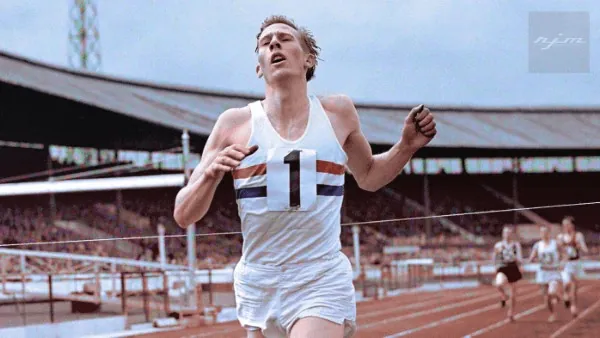
Breaking the Four-Minute Mile: Does Running Enhance Longevity?
2024-11-13
Author: Amelia
Breaking the Four-Minute Mile: Does Running Enhance Longevity?
In the mid-20th century, the four-minute mile was thought to be a legendary benchmark that only the most elite athletes could hope to achieve. It stayed untouched until Roger Bannister made history in 1954, shattering this seemingly impossible milestone. This monumental achievement not only revolutionized the world of middle-distance running but also raised intriguing questions: could there be more to this feat than mere athletic prowess?
A groundbreaking study titled "Outrunning the Grim Reaper: Longevity of the First 200 Sub-Four-Minute Mile Runners" tackled this very topic, examining the lifespans of the trailblazing athletes who managed to break the four-minute barrier.
The findings revealed a striking correlation between these extraordinary runners and increased longevity. On average, the sub-four-minute milers enjoyed a lifespan that was approximately 4.7 years longer than their predicted life expectancy. Interestingly, most of these remarkable athletes achieved this milestone around the age of 23.
Digging deeper, researchers such as Stephen Foulkes uncovered even more fascinating details. For the earliest milers from the 1950s, the longevity boost was a staggering 9 years compared to their expected lifespans. In contrast, athletes who broke the barrier in the 1960s and 1970s experienced shorter longevity increases—approximately 5.5 and 2.9 years, respectively.
This decline in longevity benefits over subsequent decades suggests that improvements in healthcare are playing a significant role in leveling the playing field. Modern medical advancements and improved diagnostic techniques appear to be compensating for the longevity advantages that were once largely attributed to rigorous physical training and a commitment to peak athletic performance.
This compelling research not only sheds light on the impressive endurance of elite runners but also pushes us to consider what factors contribute to a longer, healthier life. While rigorous training certainly seems to offer advantages, it's important to consider the multifaceted nature of longevity, involving dietary, lifestyle, and medical advancements that collectively influence how long we live.
So, what can we learn from these sub-four-minute milers? Perhaps it serves as a reminder that pushing our physical limits, combined with a balanced approach to health, may just be the secret ingredient to a longer life. Next time you lace up your running shoes, remember that the track could lead to more than just personal bests—it might just pave the way for a lengthier, more vibrant life.









 Brasil (PT)
Brasil (PT)
 Canada (EN)
Canada (EN)
 Chile (ES)
Chile (ES)
 España (ES)
España (ES)
 France (FR)
France (FR)
 Hong Kong (EN)
Hong Kong (EN)
 Italia (IT)
Italia (IT)
 日本 (JA)
日本 (JA)
 Magyarország (HU)
Magyarország (HU)
 Norge (NO)
Norge (NO)
 Polska (PL)
Polska (PL)
 Schweiz (DE)
Schweiz (DE)
 Singapore (EN)
Singapore (EN)
 Sverige (SV)
Sverige (SV)
 Suomi (FI)
Suomi (FI)
 Türkiye (TR)
Türkiye (TR)